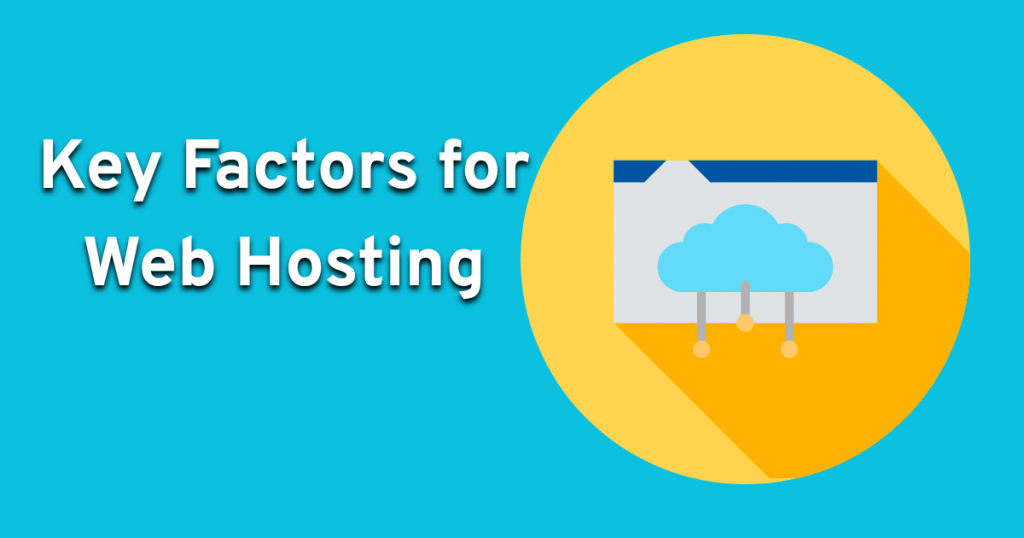Do you ever wonder where your website actually “lives” on the internet, or why some websites are blazing fast while others crawl along? Many small business owners overlook the critical role of web hosting, often choosing the cheapest option without understanding its profound impact on website performance, security, and reliability. A poor hosting choice can lead to slow loading times, frequent downtime, security vulnerabilities, and ultimately, lost customers.
Imagine your website consistently delivering content quickly, remaining accessible 24/7, and securely handling all your traffic, even during peak periods. Picture a reliable foundation that supports your business’s growth without you having to worry about technical hiccups. Think of the peace of mind, enhanced user experience, and uninterrupted online operations that come from choosing the right “home” for your website.
This post, “Your Website’s Home: Demystifying Web Hosting for Small Business Owners,” will break down the essentials of web hosting. We’ll explore different types of hosting, key factors to consider when choosing a provider, and best practices to ensure your website’s home is robust and reliable. Get ready to make an informed decision that truly empowers your online presence.
Table of Contents

What is Web Hosting and Why It’s Your Website’s Foundation
At its core, web hosting is the service that allows your website to be accessible on the internet. When you create a website, it consists of various files (HTML, CSS, images, videos, etc.) and a database. These files need to be stored on powerful, specialized computers called servers that are connected to the internet 24/7. A web hosting provider rents out space on these servers to store your website’s files and makes them available to anyone who types your website address into a browser.
Think of it this way:
- Your website is your digital storefront.
- Web hosting is the physical land and building where your storefront resides.
- Your domain name (e.g., yourbusiness.com) is your street address.
Without reliable hosting, your website simply cannot exist online. It’s the foundational infrastructure that directly impacts your site’s:
- Speed & Performance: How quickly your site loads for visitors.
- Uptime & Reliability: How often your site is online and accessible.
- Security: How well your data and customer information are protected.
- Scalability: How easily your site can handle increased traffic as your business grows.
- SEO: Google favors fast, reliable, and secure websites.
Choosing the right web host is as critical as choosing a good location for a physical store.

Common Types of Web Hosting (and Who They’re For)
Understanding the different types of web hosting will help you choose a solution that aligns with your website’s needs and budget.
1. Shared Hosting
- Concept: Your website shares server resources (CPU, RAM, disk space) with many other websites.
- Pros: Most affordable, easiest to set up, ideal for beginners.
- Cons: Performance can be impacted by other sites on the same server (“noisy neighbor” effect), less control, limited scalability.
- Ideal For: New small businesses, personal blogs, very simple brochure websites with low traffic.
2. VPS (Virtual Private Server) Hosting
- Concept: A physical server is partitioned into several virtual servers. Each VPS acts like a dedicated server, offering more resources and control than shared hosting, but still shares the underlying physical hardware.
- Pros: Better performance and reliability than shared, more control and customization, more scalable than shared, often more affordable than dedicated.
- Cons: Requires some technical knowledge to manage (unless it’s a managed VPS), more expensive than shared.
- Ideal For: Growing small businesses, medium-sized e-commerce sites, sites with moderate traffic, or those needing custom software installations.
3. Dedicated Server Hosting
- Concept: You lease an entire physical server that is dedicated solely to your website(s). You have full control over the server.
- Pros: Maximum performance, security, and control; can handle very high traffic and complex applications.
- Cons: Most expensive, requires significant technical expertise to manage.
- Ideal For: Large enterprises, very high-traffic websites, complex custom web applications, or businesses with strict security and compliance requirements.
4. Cloud Hosting
- Concept: Your website is hosted on a network of interconnected virtual servers that pull resources from a vast underlying physical server infrastructure. Resources can be scaled up or down instantly as needed.
- Pros: High scalability (pay-as-you-go for resources), excellent reliability (if one server fails, another takes over), generally high performance.
- Cons: Can be more complex to manage, costs can be unpredictable if not monitored closely.
- Ideal For: Websites with fluctuating traffic (e.g., seasonal businesses), large e-commerce sites, and web applications needing extreme flexibility.
5. Managed Hosting (for CMS like WordPress)
- Concept: The hosting provider manages all the technical aspects of your specific CMS (e.g., WordPress core updates, security, backups, caching optimization).
- Pros: Extremely easy to use, optimized for your CMS, high performance and security, excellent support.
- Cons: More expensive than standard shared hosting, less control over the server environment, tied to a specific CMS.
- Ideal For: Small businesses using WordPress (or other specific CMS) who want high performance and reliability without the technical hassle. (e.g., WP Engine, Kinsta, SiteGround’s managed WordPress plans).
For most small businesses, Shared Hosting is often the starting point, but a Managed Hosting solution (especially for WordPress) or a VPS offers significant advantages as you grow.

Key Factors to Consider When Choosing a Web Host
Beyond the type of hosting, several key factors differentiate web hosting providers and should influence your decision:
- Uptime Guarantee: Look for 99.9% uptime or higher. This indicates how reliable the host is at keeping your site online.
- Speed/Performance Features: Look for SSD storage, CDN integration, caching solutions, and optimized server configurations.
- Security Features: SSL certificates, firewalls, malware scanning, DDoS protection, and regular security updates.
- Scalability Options: Can you easily upgrade your hosting plan as your traffic grows?
- Customer Support: 24/7 availability, multiple contact methods (phone, chat, ticket), and knowledgeable staff.
- Backup & Restore: Automatic daily backups and easy one-click restore options.
- Control Panel: User-friendly interface (like cPanel or Plesk) for managing your hosting account.
- Pricing & Renewal Costs: Be aware of introductory pricing that jumps significantly upon renewal.
- Reviews & Reputation: Check independent reviews and industry reputation.
Don’t compromise on these factors for a few dollars saved; your website’s performance and reliability are too important.

Web Hosting Best Practices for Small Businesses
Once you’ve chosen a host, adopting these best practices will help ensure your website’s home remains stable and performant:
- Choose a Reputable Provider: Don’t just go for the cheapest. Invest in a host with a proven track record of reliability and good support.
- Monitor Uptime: Use third-party tools (like UptimeRobot) to independently monitor your site’s availability.
- Understand Your Resource Usage: Keep an eye on your hosting usage (disk space, bandwidth, CPU) to ensure you’re not outgrowing your plan.
- Keep Your CMS and Plugins Updated: As discussed in Post 6, this is critical for security and compatibility, regardless of your host.
- Utilize Caching: Implement caching (via plugins or host-level options) to speed up content delivery.
- Optimize Images: Large, unoptimized images consume bandwidth and slow down your site, regardless of your hosting plan.
- Use a CDN (Content Delivery Network): For businesses with a global audience, a CDN can significantly speed up content delivery by serving files from servers closer to your users.
- Regularly Back Up Your Site: Even if your host offers backups, having your own independent backups provides an extra layer of security.
Proactive management of your web hosting ensures your website remains a robust and reliable asset for your business.

Your Web Hosting Playbook: A Stable Digital Home
You now have a powerful web hosting playbook for demystifying your website’s home and making informed decisions for your small business. From understanding what web hosting is and why it’s your website’s foundation, to exploring common types (shared, VPS, dedicated, cloud, managed), identifying key factors for choosing a provider, and adopting best practices, you have the essential framework for a stable and high-performing online presence.
Remember, your web host is the silent partner supporting your entire online operation. A thoughtful choice here contributes directly to your website’s speed, security, reliability, and scalability, ultimately empowering your business’s digital growth.
Embrace this playbook, and watch as your website thrives on a robust and reliable foundation.
Final Thoughts
You’ve now explored demystifying web hosting for small business owners, understanding that your website’s home is critical for its success. From what hosting is and why it’s fundamental, to breaking down various types, identifying key factors for selection, and implementing best practices, you have a comprehensive guide. Remember, investing in quality hosting is investing in your website’s performance, security, and reliability. If you need personalized guidance or have questions about choosing the best web host for your business, please feel free to email me at info@arman-portfolio.com. I’m here to help you find the perfect digital home for your website!
Frequently Asked Questions (FAQs)
Q1: What is web hosting, and why is it essential for a website?
A1: Web hosting is the service that stores your website’s files on servers and makes them accessible on the internet 24/7. It’s essential because without it, your website cannot exist online.
Q2: What’s the main difference between shared hosting and VPS hosting?
A2: Shared hosting means your website shares server resources with many other sites. VPS hosting gives you a dedicated portion of a server’s resources, offering more performance and control, though still on a shared physical machine.
Q3: When should a small business consider upgrading from shared hosting?
A3: When their website experiences slow loading times, frequent downtime, or receives significantly increased traffic that shared hosting can no longer handle efficiently.
Q4: What is “managed hosting,” and what are its benefits?
A4: Managed hosting (often for specific CMS like WordPress) means the provider handles all technical aspects like updates, security, backups, and caching. Its benefits include ease of use, high performance, and excellent support without the technical hassle.
Q5: What is cloud hosting, and why is it scalable?
A5: Cloud hosting uses a network of interconnected virtual servers. It’s highly scalable because resources can be instantly allocated from the network as needed, allowing you to pay only for what you use.
Q6: What are the most important factors to consider when choosing a web host?
A6: Uptime guarantee, speed/performance features, security features, scalability options, customer support, backup/restore capabilities, control panel ease of use, and pricing transparency.
Q7: Why is “uptime guarantee” important?
A7: An uptime guarantee (e.g., 99.9%) indicates how consistently your website will be online and accessible to visitors. Higher uptime means less potential for lost sales or frustrated customers.
Q8: Should I only consider the cheapest hosting option?
A8: No. While budget is a factor, prioritizing the cheapest option often leads to compromises in performance, reliability, security, and support, which can cost your business more in the long run.
Q9: What’s a CDN, and should my small business use one?
A9: A CDN (Content Delivery Network) serves your website’s content from servers geographically closer to your users. It’s beneficial for speeding up content delivery, especially for businesses with a global or widespread audience.
Q10: How does good web hosting contribute to my website’s SEO?
A10: Google favors websites that are fast, reliable (high uptime), and secure (SSL certificate). Good hosting directly contributes to these factors, improving your website’s search engine ranking potential.

As a programmer and graphic designer, I’ve always been driven to immerse myself in diverse graphical tools and languages. This hands-on experience has been pivotal, not only expanding my technical proficiency but also sharpening my unique ability to adapt and apply these skills to new challenges and varied work environments.